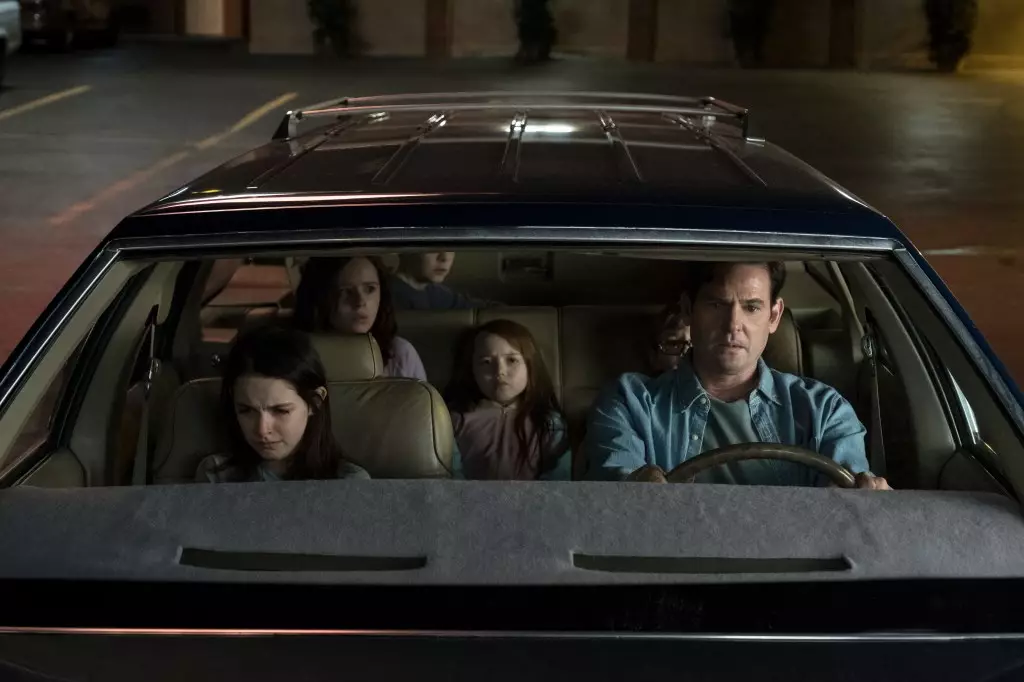Mike Flanagan, a luminary in contemporary horror, showcases the profound emotional depths within his films and series. During a compelling session at the inaugural SXSW London, he shared a raw and vulnerable perspective on how his creative endeavors revitalized his spirit in the face of personal loss. His work, particularly the emotionally charged Netflix series “The Haunting of Hill House,” becomes more meaningful when we realize it serves as a profound coping mechanism for the grief stemming from a suicide in his family. For Flanagan, art transcends mere entertainment; it becomes a life raft in turbulent emotional seas, offering both solace and a platform to explore complex themes like loss.
In recounting the harrowing yet transformative experiences, Flanagan articulated that he channels his nightmares and dreams into his art. He stated, “There are images in that that are dreams and nightmares I had during that time.” This statement reverberates with anyone who has grappled with grief. Rather than shying away from his pain, Flanagan embraces it, allowing his audience to confront their struggles in a shared journey of understanding and healing. It’s not merely about fear and scares; it’s an exploration of the human experience, illuminating shadows that often go unspoken.
Redefining the Horror Genre
One of Flanagan’s most striking observations is the persistent bias against the horror genre. This misconception insinuates that horror cannot convey profundity or artistry, relegating it unfairly to the realm of mindless thrills. Flanagan argues passionately that, while horror’s reputation fluctuates with each award-winning entry, the truth remains that horror encompasses intricate storytelling and aesthetic merit. His criticism aims not just at the industry but at audiences who frequently overlook the depth and complexity that horror narratives can achieve.
“Horror was always a popular genre in film,” he pointed out, yet somehow, a collective surprise arises when a film transcends its boxes. The genre, which Flanagan argues is often undervalued, functions as a mirror, reflecting both our fears and our resilience. His assertion that people outside the genre are continually amazed when good storylines emerge is a testament to the systemic failure to recognize horror as a legitimate form of artistic expression. Through his films, Flanagan advocates for an understanding of horror not just as a source of frights but as a vibrant canvas of human emotion and morality.
Stephen King: More Than Just Horror
In a surprising divergence from the traditional image of horror, Flanagan shares his invaluable insights on Stephen King, portraying him not just as a master of horror but as an empathetic storyteller. He refers to King as a “gooey-hearted, lovely humanist,” emphasizing the depth of compassion that infuses King’s narratives. According to Flanagan, King’s horror arises organically from rich character development rather than gratuitous gore. This reiteration that King’s works center around fundamental aspects of humanity—friendship, fear, love—reshapes our understanding of what horror can encapsulate.
This profound analysis is particularly crucial in an era where genre boundaries are often starkly drawn. By bringing King’s humanism to the forefront, Flanagan elevates the conversation surrounding horror, urging audiences to see beyond the conventional tropes of scares and monstrosities. The revelation that “It” is not merely about a terrifying clown but rather about the struggles of childhood bonds speaks volumes to the richness of horror as a vessel for deeper commentary on human experiences.
The Art of the Monologue
Flanagan’s heartfelt advocacy for the art of the monologue further illustrates his commitment to narrative depth within film. In an industry increasingly driven by rapid pacing and action, he defends the monologue as a powerful tool for connection and transformation. “There is nothing more impressive than watching an actor completely change reality with just words,” he asserted, invoking applause from the audience. In this fast-paced world of entertainment, where moments can often feel diminished, Flanagan’s call emphasizes the need for patience and acknowledgment of the transformative power of dialogue.
His insistence that studio pressures threaten the integrity of storytelling is a poignant reminder that art must not be subjugated to mere commercial outcomes. Flanagan’s struggle for the preservation of monologues in cinematic narratives stands as a testament to his belief in the profundity of language and its power to evoke emotion.
In sharing his journey through loss, grief, and artistic exploration, Mike Flanagan embodies the essence of a storyteller who challenges conventions while courageously confronting his own demons, leaving us to ponder the depths of our experiences through the lens of horror.


Leave a Reply